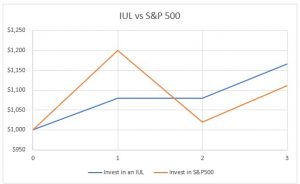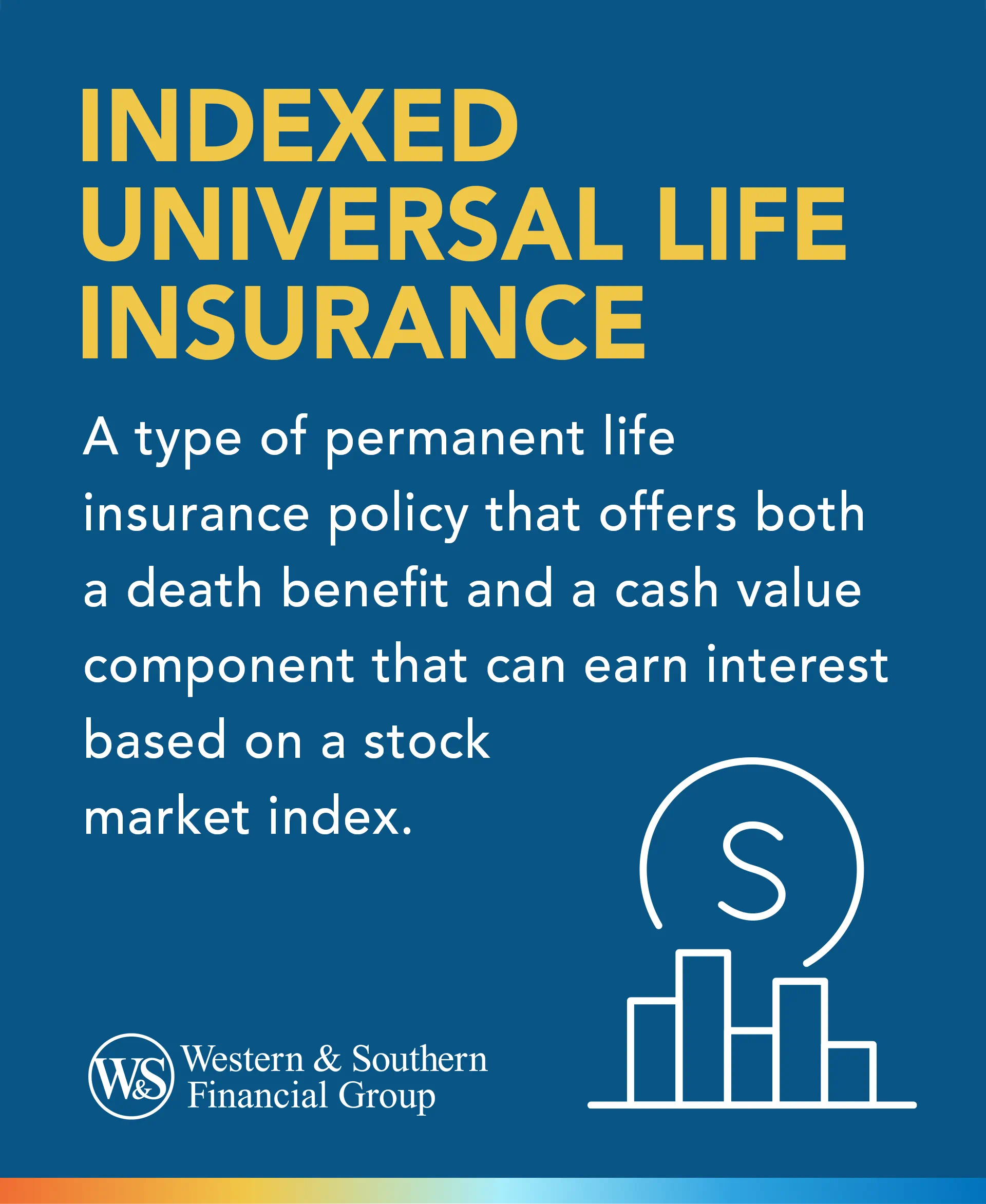All Categories
Featured
Table of Contents
Do they contrast the IUL to something like the Lead Overall Stock Market Fund Admiral Shares with no lots, an expenditure proportion (EMERGENCY ROOM) of 5 basis factors, a turn over ratio of 4.3%, and a remarkable tax-efficient document of circulations? No, they contrast it to some dreadful actively managed fund with an 8% load, a 2% ER, an 80% turn over proportion, and an awful record of temporary capital gain distributions.
Shared funds commonly make annual taxed circulations to fund proprietors, even when the worth of their fund has gone down in value. Mutual funds not only need revenue coverage (and the resulting yearly taxation) when the common fund is rising in value, but can also impose revenue taxes in a year when the fund has actually gone down in value.
That's not just how common funds work. You can tax-manage the fund, gathering losses and gains in order to reduce taxable distributions to the investors, yet that isn't in some way mosting likely to transform the reported return of the fund. Only Bernie Madoff kinds can do that. IULs stay clear of myriad tax traps. The possession of common funds may need the mutual fund owner to pay projected tax obligations.

IULs are easy to position to make sure that, at the owner's death, the beneficiary is not subject to either income or estate taxes. The exact same tax obligation reduction strategies do not function almost as well with common funds. There are numerous, typically expensive, tax traps linked with the timed trading of common fund shares, catches that do not put on indexed life Insurance.
Possibilities aren't really high that you're going to undergo the AMT due to your common fund distributions if you aren't without them. The remainder of this one is half-truths at ideal. For example, while it is real that there is no revenue tax obligation because of your beneficiaries when they acquire the earnings of your IUL policy, it is also true that there is no earnings tax due to your heirs when they acquire a mutual fund in a taxed account from you.
Index Universal Life Insurance Tax Free
There are much better methods to prevent estate tax issues than getting investments with low returns. Common funds might create income tax of Social Protection advantages.

The growth within the IUL is tax-deferred and might be taken as tax totally free income by means of financings. The policy proprietor (vs. the shared fund manager) is in control of his or her reportable earnings, hence allowing them to decrease or perhaps remove the taxes of their Social Protection advantages. This set is great.
Right here's an additional marginal problem. It's true if you acquire a common fund for state $10 per share right before the circulation day, and it disperses a $0.50 circulation, you are after that mosting likely to owe taxes (probably 7-10 cents per share) although that you haven't yet had any kind of gains.
But in the end, it's actually about the after-tax return, not just how much you pay in tax obligations. You are going to pay even more in taxes by utilizing a taxed account than if you buy life insurance. You're additionally probably going to have even more cash after paying those tax obligations. The record-keeping needs for owning shared funds are considerably a lot more complicated.
With an IUL, one's records are maintained by the insurance provider, copies of annual declarations are sent by mail to the proprietor, and circulations (if any type of) are totaled and reported at year end. This is also kind of silly. Certainly you should keep your tax obligation records in instance of an audit.
Flexlife Indexed Universal Life
Rarely a factor to purchase life insurance. Mutual funds are frequently part of a decedent's probated estate.
On top of that, they are subject to the delays and expenses of probate. The profits of the IUL plan, on the other hand, is always a non-probate distribution that passes outside of probate straight to one's named recipients, and is consequently not subject to one's posthumous creditors, unwanted public disclosure, or comparable hold-ups and prices.
Medicaid incompetency and lifetime income. An IUL can offer their proprietors with a stream of income for their entire life time, regardless of how lengthy they live.

This is valuable when organizing one's events, and transforming possessions to earnings before a nursing home arrest. Common funds can not be converted in a comparable way, and are generally considered countable Medicaid properties. This is one more stupid one supporting that bad people (you know, the ones that need Medicaid, a government program for the bad, to pay for their retirement home) must utilize IUL as opposed to mutual funds.
Life Insurance Cost Indexes
And life insurance policy looks awful when compared fairly versus a pension. Second, individuals that have cash to purchase IUL above and beyond their retirement accounts are going to have to be dreadful at taking care of money in order to ever receive Medicaid to pay for their nursing home prices.
Persistent and incurable disease motorcyclist. All policies will certainly allow an owner's simple accessibility to cash money from their plan, usually waiving any kind of abandonment penalties when such individuals endure a significant health problem, need at-home treatment, or come to be constrained to a retirement home. Mutual funds do not provide a comparable waiver when contingent deferred sales charges still relate to a mutual fund account whose owner needs to offer some shares to fund the expenses of such a remain.
No Lapse Guarantee Universal Life Insurance
You obtain to pay even more for that advantage (biker) with an insurance plan. What a good deal! Indexed global life insurance policy provides survivor benefit to the beneficiaries of the IUL owners, and neither the proprietor neither the beneficiary can ever before lose cash as a result of a down market. Shared funds give no such warranties or survivor benefit of any type of kind.
Currently, ask on your own, do you actually need or desire a survivor benefit? I definitely do not need one after I reach financial self-reliance. Do I want one? I expect if it were cheap enough. Certainly, it isn't cheap. Usually, a buyer of life insurance policy pays for real price of the life insurance advantage, plus the costs of the policy, plus the profits of the insurance provider.
Can I Cash Out My Universal Life Insurance Policy
I'm not entirely sure why Mr. Morais included the entire "you can not shed money" again below as it was covered quite well in # 1. He simply wished to duplicate the very best selling factor for these points I expect. Again, you do not shed nominal bucks, yet you can shed real dollars, along with face significant opportunity expense as a result of reduced returns.

An indexed universal life insurance policy policy proprietor might trade their policy for a totally different policy without triggering income tax obligations. A common fund proprietor can not relocate funds from one common fund firm to one more without offering his shares at the previous (therefore causing a taxable occasion), and buying brand-new shares at the latter, typically subject to sales charges at both.
While it is true that you can trade one insurance plan for another, the factor that people do this is that the first one is such a terrible policy that also after getting a new one and going through the early, negative return years, you'll still come out in advance. If they were marketed the appropriate plan the very first time, they should not have any need to ever exchange it and undergo the very early, negative return years once again.
Latest Posts
Index Universal Life Insurance Reviews
Adjustable Life Plan
New York Life Universal Life Insurance